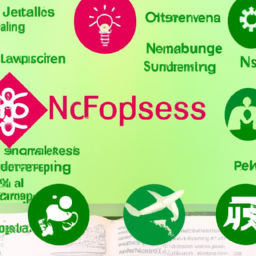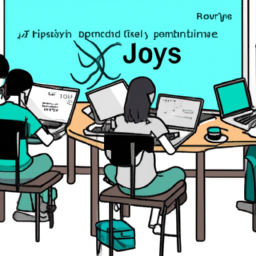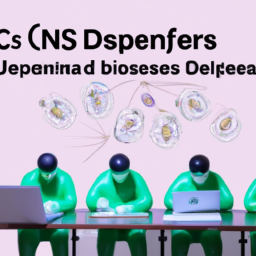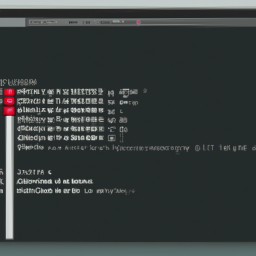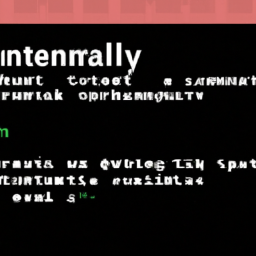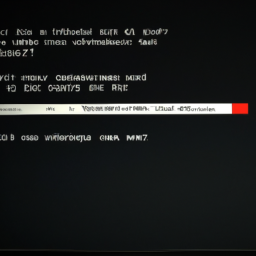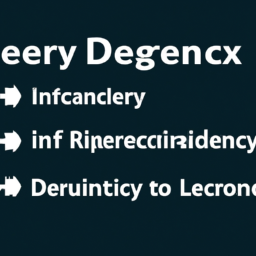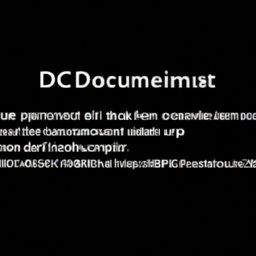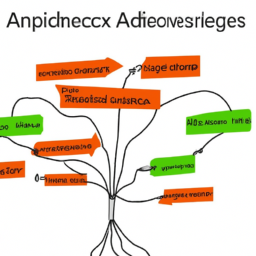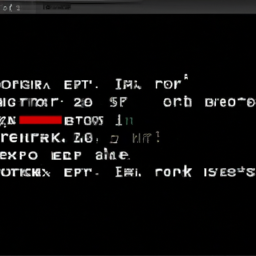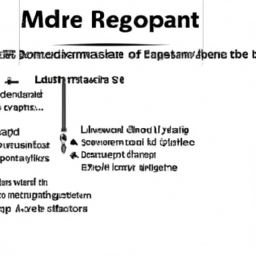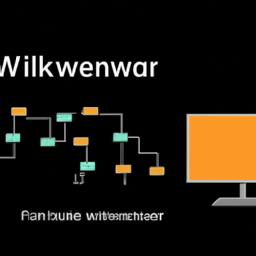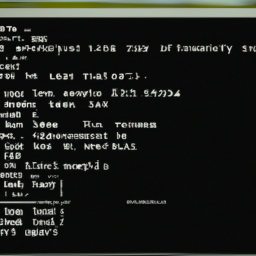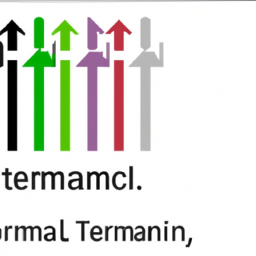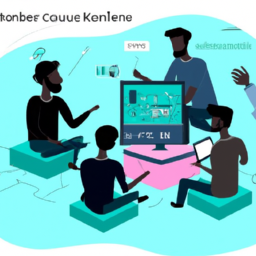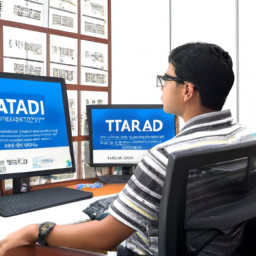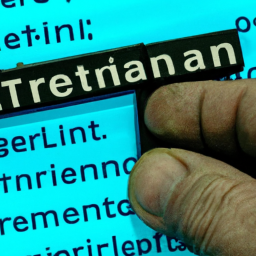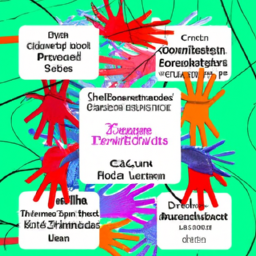Imagine you’re embarking on a thrilling quest for knowledge, delving into the secrets of the OpenJS Node.js Services Developer (Chinese Version) exam. Just like a skilled adventurer, you yearn to uncover the hidden gems that will lead you to success.
Well, get ready to unveil these secrets, for this article will guide you through the treacherous path of exam preparation.
In this article, we will explore the format and structure of the exam, equip you with the relevant topics and concepts to study, and provide valuable tips on time management and exam-day preparation.
You’ll discover the power of practicing with sample questions and mock exams, as well as the wealth of online resources and study materials at your disposal.
Are you ready to embrace this adventure and conquer the OpenJS Node.js Services Developer (Chinese Version) exam? Let’s embark on this journey together and unlock the secrets that will lead you to triumph!
Key Takeaways
- The OpenJS Node.js Services Developer (Chinese Version) exam is a multiple-choice question format exam.
- It is important to have a strong understanding of Node.js fundamentals, event-driven and asynchronous programming model, building and deploying Node.js applications, containerization, load balancing, caching techniques, debugging and testing Node.js applications, and test-driven development.
- It is recommended to practice with sample questions and mock exams to identify knowledge gaps and familiarize yourself with the exam format.
- Effective time management strategies for the exam include dividing the exam into sections, answering easy questions first, monitoring time, skipping difficult questions, and reviewing answers.
Understand the Exam Format and Structure
You should familiarize yourself with the exam format and structure to maximize your chances of success. Understanding how the exam is organized and what to expect will help you prepare more effectively.
When it comes to exam preparation techniques, knowing the format and structure is essential. The OpenJS Node.js Services Developer exam consists of multiple-choice questions. It’s important to read each question carefully and choose the best answer.
Common mistakes to avoid include rushing through the exam and not allocating enough time for each question. Make sure to manage your time effectively to complete all the questions.
Now that you understand the exam format, it’s time to study the relevant topics and concepts to ensure a comprehensive preparation.
Study the Relevant Topics and Concepts
To prepare for the openjs node.js services developer (Chinese version) exam, you need to study the relevant topics and concepts.
This includes understanding Node.js fundamentals, learning about building and deploying Node.js applications, and mastering the techniques for debugging and testing Node.js applications.
By focusing on these key areas, you’ll be well-equipped to tackle the exam and demonstrate your expertise in developing Node.js services.
Node.js Fundamentals
Imagine being able to build powerful and scalable web applications using Node.js, the popular JavaScript runtime environment. Node.js is known for its event-driven and asynchronous programming model, which allows developers to handle multiple requests efficiently. By understanding the fundamentals of Node.js, you will be equipped with the knowledge to create robust applications that can handle high traffic and concurrent tasks.
To help you grasp the key concepts, here is a table summarizing the main aspects of Node.js:
| Aspect | Description |
|---|---|
| Event-driven programming | Node.js uses an event-driven architecture, where events trigger callbacks to handle requests. This allows for non-blocking I/O operations and efficient resource utilization. |
| Asynchronous programming | Node.js utilizes non-blocking operations and callbacks to handle multiple requests concurrently, improving the performance and responsiveness of applications. |
Now that you have a solid foundation in Node.js fundamentals, you can move on to the next section about building and deploying Node.js applications seamlessly.
Building and Deploying Node.js Applications
Building and deploying Node.js applications can be a challenging task due to the need for seamless integration with various technologies and the requirement for efficient resource allocation. To make the process more manageable, here are three deployment strategies and performance optimization techniques to consider:
-
Containerization: Utilize containerization tools like Docker to package your Node.js application along with its dependencies, making it easier to deploy consistently across different environments.
-
Load Balancing: Implement load balancing techniques to distribute incoming traffic evenly across multiple instances of your application, ensuring high availability and improved performance.
-
Caching: Use caching mechanisms, such as Redis or Memcached, to store frequently accessed data in memory, reducing the need for repeated resource-intensive computations and enhancing overall application performance.
By implementing these strategies and optimizing your Node.js application’s performance, you can ensure a smoother deployment process and improved user experience.
In the subsequent section about debugging and testing Node.js applications, you’ll learn how to identify and fix potential issues to further enhance your application’s stability and performance.
Debugging and Testing Node.js Applications
Mastering the art of debugging and testing your Node.js applications is essential for ensuring seamless performance and stability. Test-driven development for Node.js applications is a popular approach that involves writing tests before writing the actual code. This helps in identifying potential issues early on and ensures that the code meets the desired requirements.
Additionally, debugging asynchronous code in Node.js can be challenging due to its non-blocking nature. Effective strategies for debugging asynchronous code include using debuggers, console.log statements, and async/await syntax. These techniques help in identifying and resolving issues such as race conditions and callback errors.
By honing your debugging and testing skills, you can ensure that your Node.js applications are robust and reliable.
Now, let’s delve into the next section about practice with sample questions and mock exams.
Practice with Sample Questions and Mock Exams
Explore your skills and test your knowledge by practicing with sample questions and mock exams in preparation for the openjs node.js services developer (chinese version) exam.
This is a great way to identify any gaps in your understanding and familiarize yourself with the exam format.
During your practice, pay attention to common mistakes that developers make during Node.js services development, such as improper error handling or inefficient code.
Additionally, focus on best practices for improving performance in Node.js applications, such as optimizing database queries and implementing caching strategies.
By practicing and learning from these mistakes, you can sharpen your skills and increase your chances of success in the exam.
As you progress, make sure to utilize online resources and study materials to further enhance your knowledge.
Utilize Online Resources and Study Materials
Harness the power of the internet and tap into the vast array of online resources and study materials available to elevate your learning experience. Here are three online learning platforms for Node.js development that can help you in your self-study journey:
-
Udemy: This popular platform offers a wide range of Node.js courses taught by industry experts. From beginner to advanced levels, you can find courses that cater to your specific needs.
-
FreeCodeCamp: With its comprehensive curriculum and interactive tutorials, FreeCodeCamp provides a hands-on approach to learning Node.js. Their community forum is also a great place to connect with fellow learners and get support.
-
NodeSchool: This open-source community-driven platform offers interactive workshops and exercises to enhance your Node.js skills. The self-paced nature of the program allows you to learn at your own speed.
By utilizing these online resources effectively, you can strengthen your knowledge and skills in Node.js development.
Now, let’s dive into time management strategies for the exam.
Time Management Strategies for the Exam
Make the most of your time during the exam by implementing effective time management strategies. Prioritizing your tasks and using your time efficiently will allow you to answer all the questions within the given timeframe. Here are some effective study techniques and time management tips to help you ace the OpenJS Node.js Services Developer exam:
| Strategy | Description | Benefits |
|---|---|---|
| Break down the exam into sections | Divide the exam into smaller sections to manage your time better | Allows you to allocate time for each section |
| Answer easy questions first | Start with questions you find easier to quickly gain momentum | Boosts your confidence and saves time |
| Monitor your time | Keep track of time throughout the exam to ensure you stay on schedule | Helps you allocate time effectively |
| Skip difficult questions | If you’re stuck on a question, move on and come back to it later | Prevents wasting time on one question |
| Review your answers | Save time at the end to review and make any necessary changes | Helps catch any mistakes or overlooked details |
By utilizing these effective time management strategies, you will be well-prepared for the exam day.
Review and Prepare for the Exam Day
On the day of the exam, it’s crucial to review and prepare in order to perform your best, just like a team of athletes reviewing game plans and practicing their moves before a championship match.
Here are some key strategies to help you with your exam day preparation and manage any exam anxiety:
-
Arrive early at the exam venue to familiarize yourself with the surroundings and avoid any last-minute stress.
-
Take a few deep breaths and remind yourself that you’ve prepared well for this day.
-
Quickly skim through your notes or flashcards to refresh your memory.
-
Prioritize the questions and allocate your time wisely, ensuring that you have enough time to answer all the questions.
-
Stay focused and confident throughout the exam, avoiding any distractions or negative thoughts.
By following these exam day preparation tips and managing your exam anxiety, you can approach the exam with a clear mind and perform to the best of your abilities. Good luck!
Frequently Asked Questions
Are there any prerequisites or qualifications required to take the OpenJS Node.js Services Developer exam?
To take the OpenJS Node.js Services Developer exam, there are no specific prerequisites or qualifications required. However, it is recommended that you have a solid understanding of JavaScript and Node.js, as well as experience in developing Node.js applications.
Additionally, studying the official documentation, online tutorials, and practice exams can help you prepare for the exam and increase your chances of success.
How long does the exam typically take to complete?
The exam is like a thrilling race, with each question propelling you closer to the finish line.
But what happens once you cross that line?
The exam scoring system evaluates your performance, measuring your knowledge and understanding of the material. It then assigns a grade based on your overall performance.
As for language options, the exam is available in both English and Chinese, ensuring accessibility for a wider range of test-takers.
Can the exam be taken online or is it only available in-person?
You can take the OpenJS Node.js Services Developer exam online or in person. It’s up to you to decide which option is more convenient for you.
As for the cost of the exam, it’s best to check the official OpenJS website for the most accurate and current information. They’ll provide you with all the details you need regarding the exam fees.
Are there any specific study materials or textbooks recommended for preparing for the exam?
To prepare for the exam, you’ll find it helpful to explore specific study materials and recommended textbooks.
These resources offer valuable insights and knowledge that can enhance your understanding of OpenJS Node.js services development.
By delving into these materials, you’ll gain a solid foundation and be well-equipped for the exam.
Remember, studying with the right resources is key to your success.
Is there a passing score or minimum percentage required to pass the exam?
There is a passing score or minimum percentage required to pass the exam. To find out the specific passing score or percentage, you should refer to the official documentation or contact the certification provider.
In terms of prerequisites or qualifications required to take the OpenJS Node.js Services Developer exam, it’s recommended to have a solid understanding of JavaScript and Node.js concepts, as well as some experience in developing Node.js applications.
Conclusion
In conclusion, now that you’ve uncovered the secrets to the openjs node.js services developer exam, you’re well-equipped to succeed.
By understanding the exam format, studying relevant topics, and practicing with sample questions, you can confidently tackle the exam.
Utilizing online resources and managing your time effectively will further enhance your performance.
Just like a skilled conductor leading a symphony, you can orchestrate your way to success in the exam.
So, go ahead and review, prepare, and conquer the exam day with confidence.







